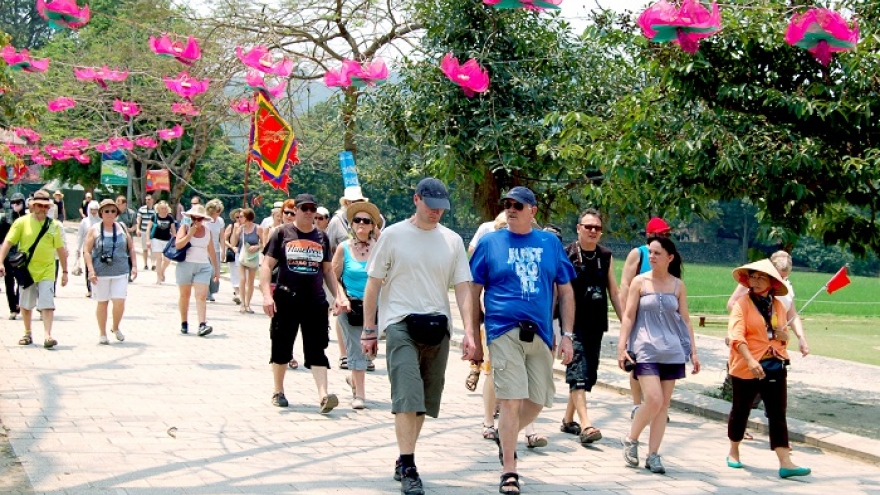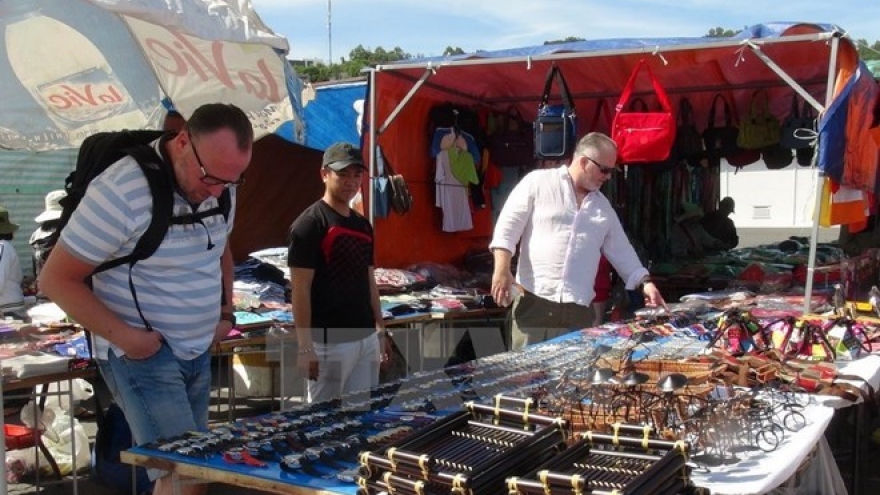Vietnam has one of the least powerful passports in Southeast Asia
Faring poorly on an international passport index, Vietnam possesses one of the least powerful passports in the region.
Ranking 74th on the World Economic Forum's Passport Index, Vietnam, together with Cambodia, possesses one of the least powerful passports in Southeast Asia.
Citizens from the two countries can visit 51 other countries and territories without applying for a visa, slightly higher than people from Myanmar, who can access only 42 countries.
 |
Singapore and Malaysia have the most powerful passports in the region with the former ranking 4th (visa exemption from 155 countries) and the latter ranking 8th (visa exemption from 151 countries).
The other rankings for Southeast Asian countries are as follows: Brunei (20th), Timor-Leste (47th), Thailand (55th), the Philippines (63rd) and Indonesia (69th).
Germany and Sweden topped the 2016 rankings, with passport holders having access to 158 countries without a visa.
The US and the UK, which shared the top position last year, have slipped to third and fourth place.
The world’s least powerful passports come from poor countries mired in political conflicts like Syria, Somalia, Iraq, Pakistan and Afghanistan. Passport holders from these nations can only visit from 24 to 31 other countries.
Two-way street
Some experts blame Vietnam's virtually toothless passport on the lack of visa reciprocity with many countries.
With a poor record of simplifying visa procedures, Vietnam has waived visas for citizens of only 21 countries, far lower than its neighbors.
Insiders are expecting little headway to be made in this regard.
“This matter is clearly very complex as it involves different ministries whose interests are not always aligned,” said Kenneth Atkinson, former chairman of the Tourism Working Group at the Vietnam Business Forum, a consortium of international and local business associations and chambers of commerce.
According to Atkinson, when Vietnam waived visas for five European countries last year, the Tourism Working Group was very upbeat that further exemptions would be granted.
"We understood that the Vietnam National Administration of Tourism had submitted a list of a further 19 countries for visa exemption but no further approvals for exemptions were given," said Atkinson, who is also executive chairman of Grant Thornton Vietnam.
For some, it may seem difficult to understand why Vietnamese authorities have not bought into the idea that visa waivers are likely to boost tourism, and that scrapping them could cause problems, especially considering the evidence available in neighboring countries.
For others, the reason is pretty clear.
"I think there are too many vested interests, too many [people] making too much money for them to turn off this lucrative revenue stream," said Nguyen Van My, a seasoned tourism expert in Ho Chi Minh City.
"Money talks, but it is killing the industry," My said.
But still, changes are afoot.
Vietnam is working on a scheme to grant electronic visas for foreign visitors in a bid to lure more tourists to the country and boost the domestic tourism industry.
Prime Minister Nguyen Xuan Phuc said last month that the government has allocated VND200 billion (US$8.8 million) to speed up the project so that the e-visa system can be launched on January 1, 2017.
While insiders on the one hand welcome this new move, others are less optimistic when it comes to visa waivers.
"We do not anticipate any further visa exemptions being granted," Atkinson said.



